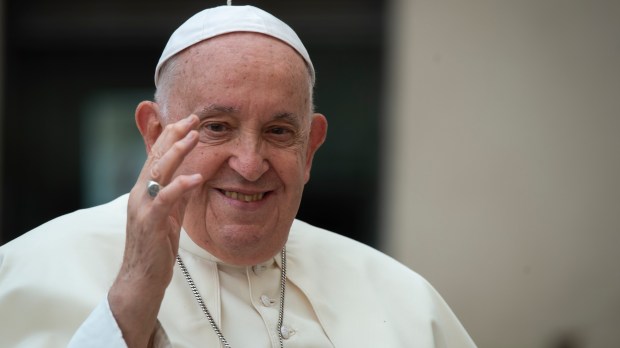Lenten Campaign 2025
This content is free of charge, as are all our articles.
Support us with a donation that is tax-deductible and enable us to continue to reach millions of readers.
“This is the secret of education: that we think what we feel and do, we feel what we think and do, and that we do what we feel and think.” This is what Pope Francis told the representatives of the University of Notre Dame, located in Indiana (USA), that met with him at the Vatican on February 1, 2024.
He encouraged the outgoing President, Father John Jenkins, and the board of trustees of the University to continue forming future leaders who are “animated by the teaching of Christ” by speaking three languages: that of the head, of the heart, and of the hands.
The Pope had already met the leadership of the university in an audience in 2014. Father Jenkins will be succeeded as president of the institution by Father Robert Dowd on July 1, 2024.
1
The head: deepen the Catholic intellectual tradition
Firstly, Pope Francis emphasized that Catholic universities and educational institutions have the important task of developing the Catholic intellectual tradition.
“Catholic institutions are grounded in the firm conviction of the intrinsic harmony of faith and reason, from which flows the relevance of the Christian message for all areas of personal and social life,” the Pope said, highlighting the importance of “a collaborative and cross-disciplinary approach” in “today’s globalized world.”
“Educators and students alike are called to a deeper appreciation […] of the richness of the Catholic intellectual tradition,” he said. “That there is an intellectual tradition does not mean being closed in; no, it means being open!”
2
The heart: “do you help young people dream?”
Although promoting knowledge should be the task of any university, Pope Francis emphasized that a Catholic establishment has also the duty to “expand the heart” of its students.
“Do you help young people dream?” He asked his audience. “We cannot overlook the essential role of religion in educating people’s hearts.”
“The whole university community is called to accompany others […] with wisdom and respect along the paths of life and help them cultivate an openness to all that is true, good, and beautiful” the Pontiff explained. “This involves the establishment of genuine relationships between educators and students so that they can walk together and understand the deepest questions, needs, and dreams experienced in human life.”
It is important that a university help all “acknowledge, appreciate, and love each person as a brother or sister, and most fundamentally, as a beloved child of God,” the Pope insisted.
3
The hands: build a better world
Other than helping students deepen their knowledge and grow spiritually, the third element Pope Francis highlighted as important for a Catholic institution is to act concretely to improve the world.
“Catholic education commits us, among other things, to the building of a better world by teaching mutual coexistence, fraternal solidarity, and peace,” the Pope said. “We cannot stay within the walls or boundaries of our institutions, but must strive to go out to the peripheries and meet and serve Christ in our neighbor.”
The Pontiff thanked the University of Notre Dame’s representatives for encouraging their faculty, students, and staff to “bear witness to the joy of the Gospel” in light of the challenges of today’s times, and also for their attention to “the needs of underprivileged communities.”
Citing the University’s founder, Father Edward Sorin, the Pope said he hopes the establishment can continue to be a “‘a powerful means for good’ in society.”


